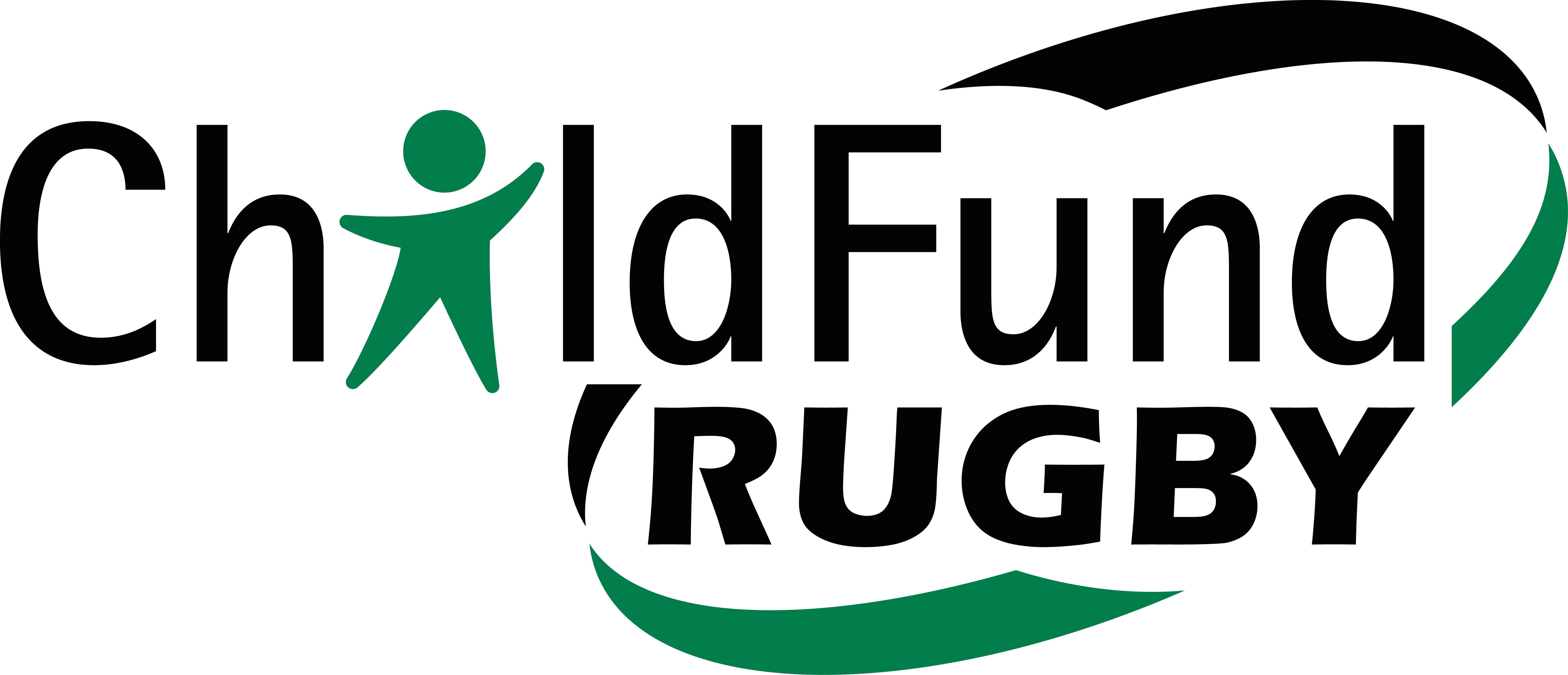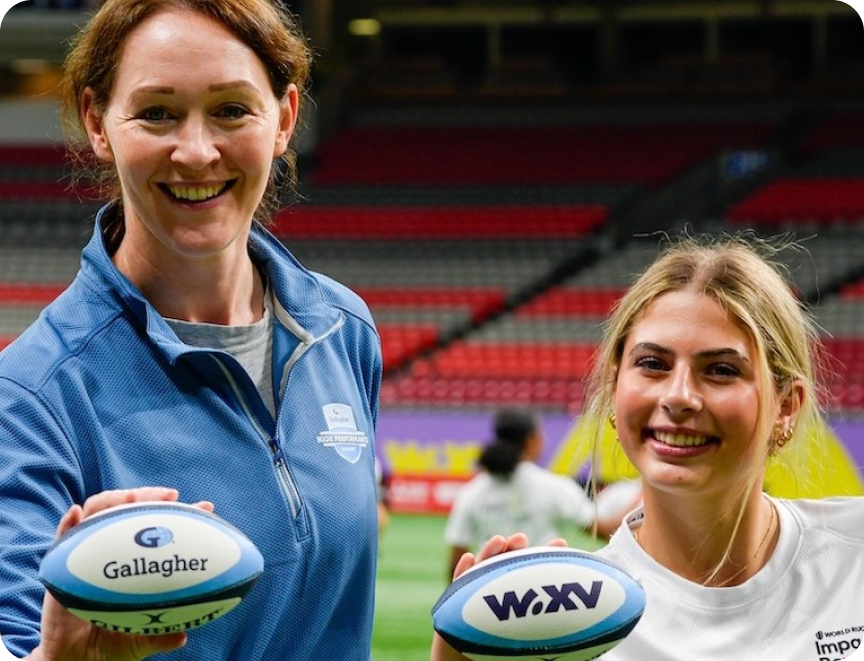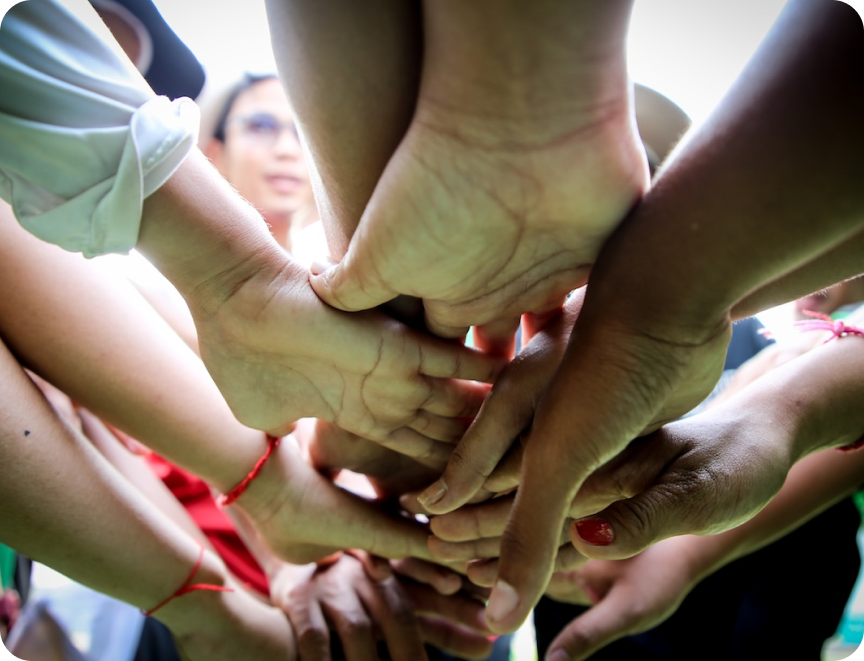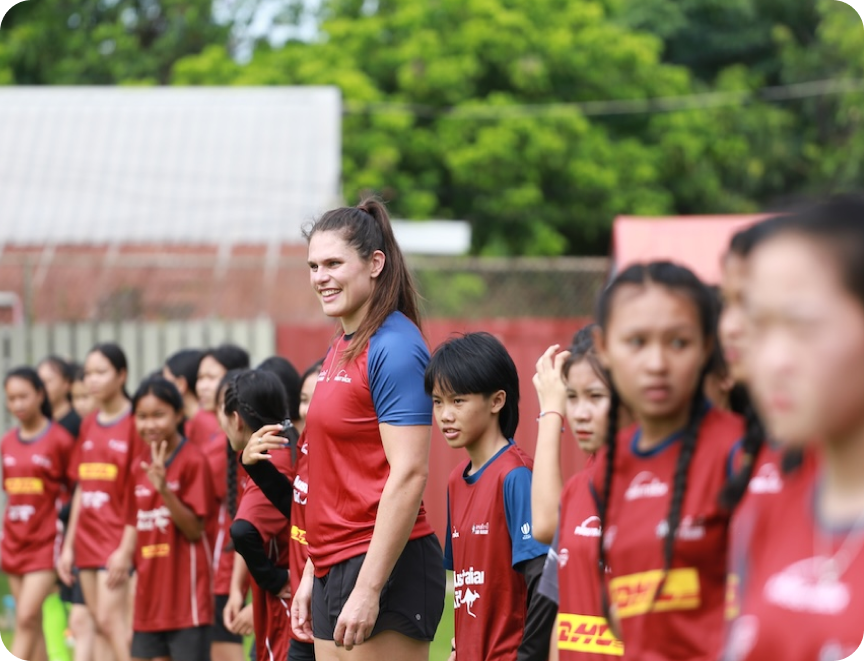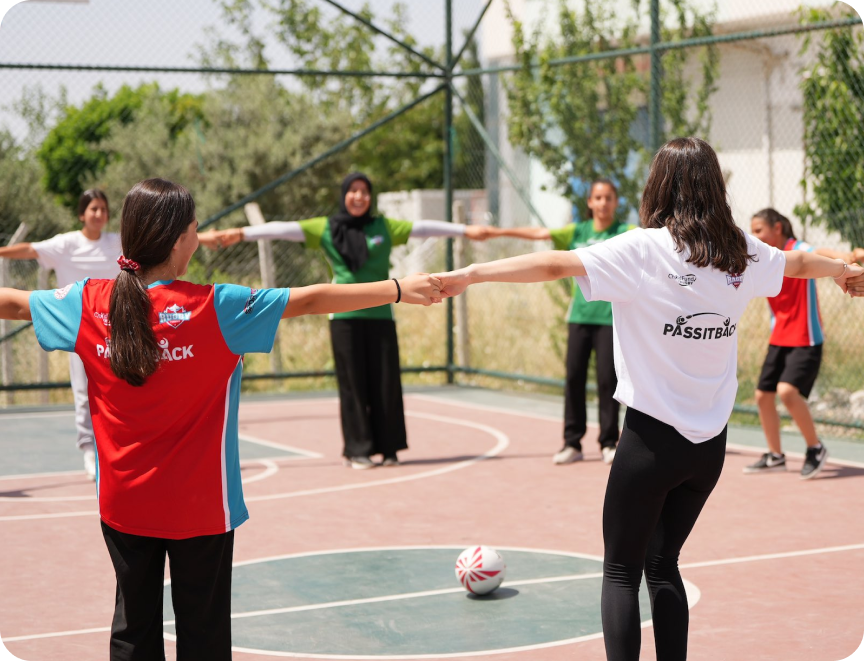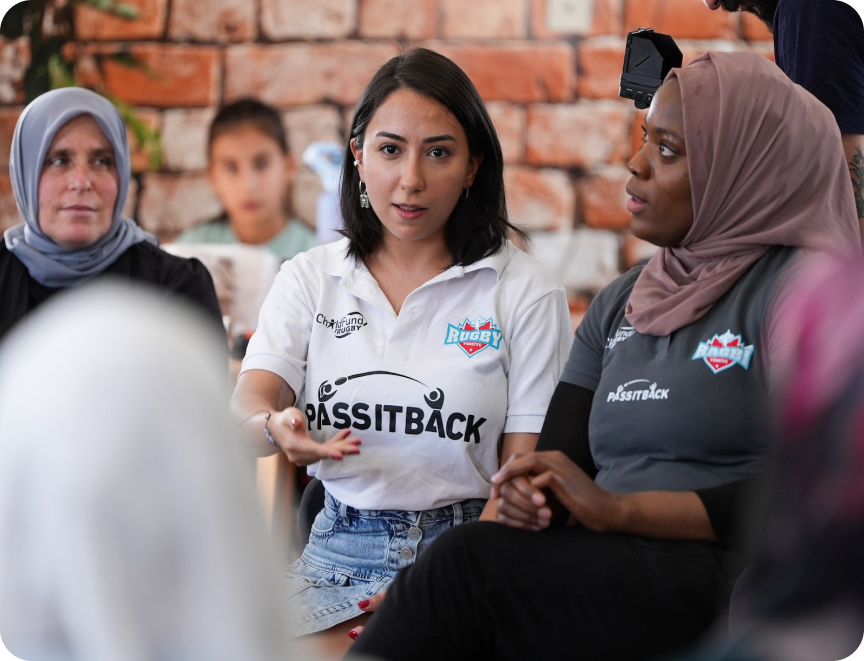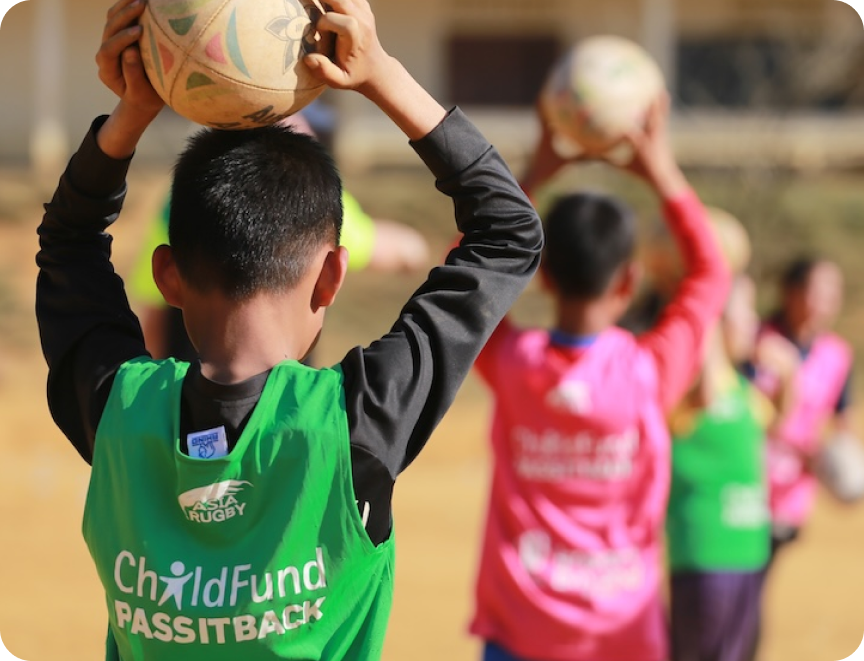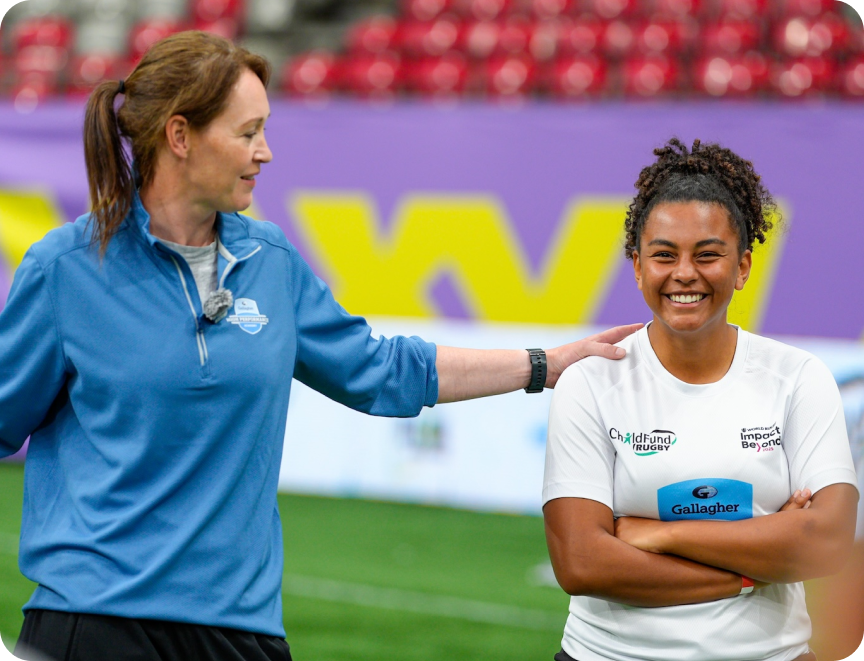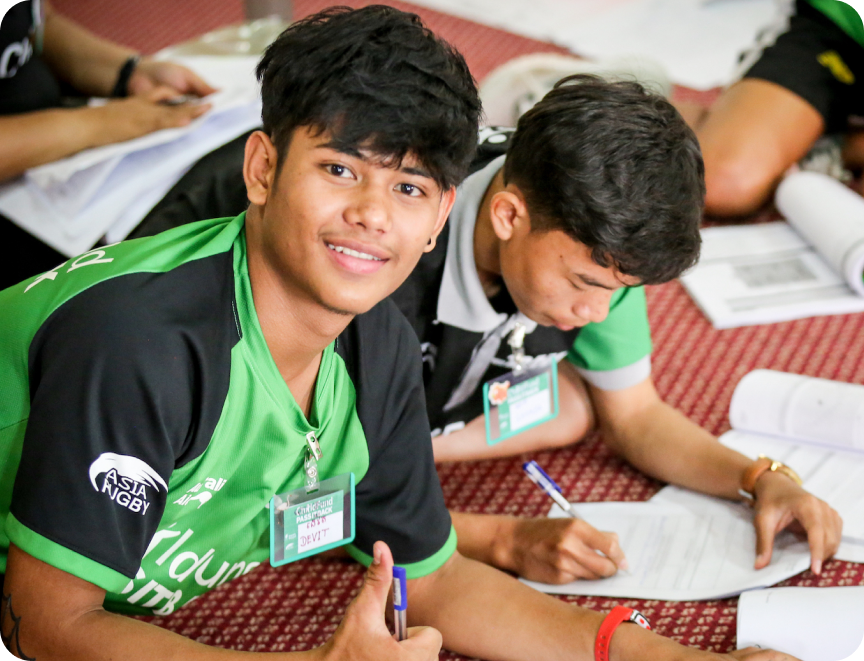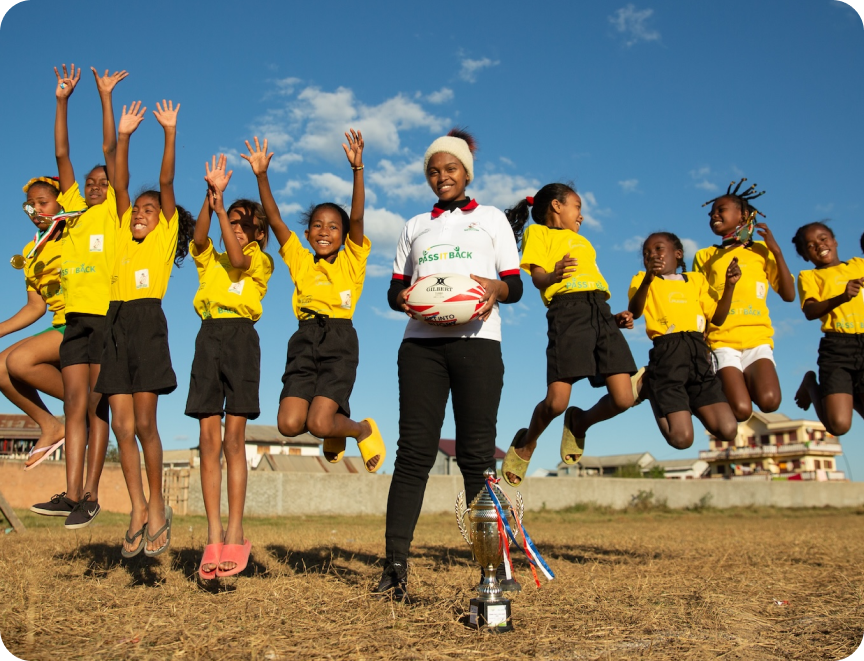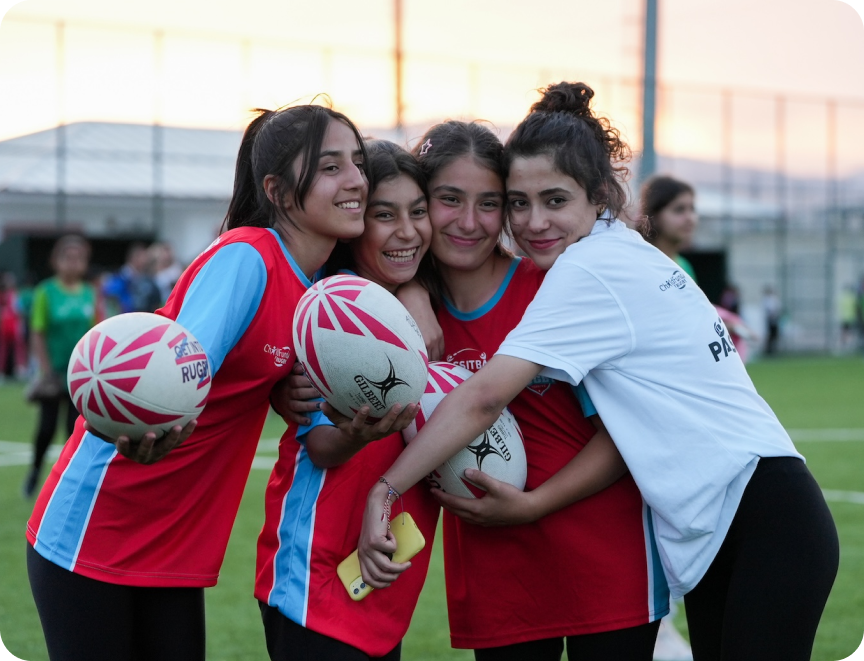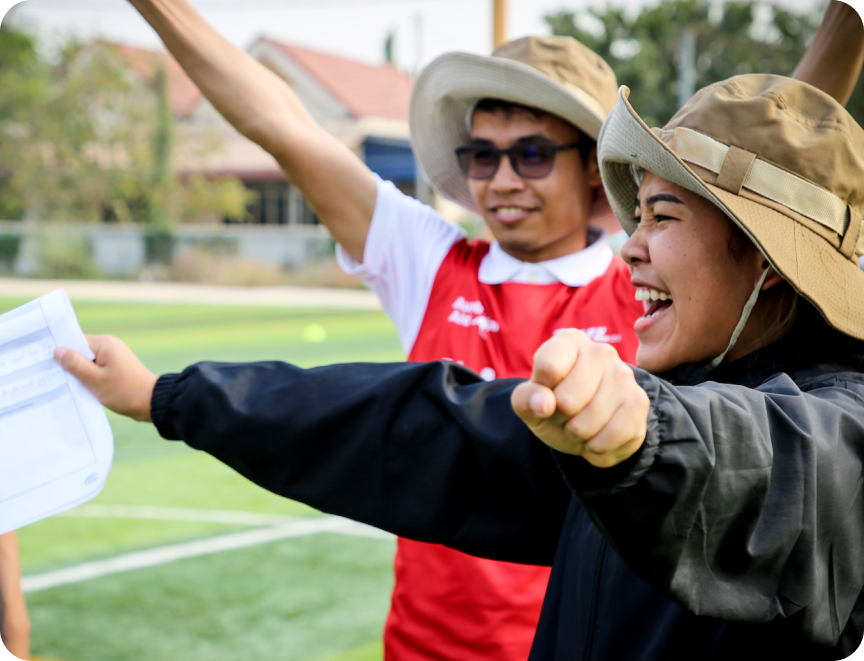New York, 22 July 2025: Sport is a powerful yet underused force for social transformation. At a special side event of the 2025 United Nations High-Level Political Forum (HLPF), global leaders from government, sport, philanthropy, media, and development gathered to unlock its potential to advance gender equality and accelerate progress on the Sustainable Development Goals (SDGs).
Co-hosted by ChildFund Rugby, World Rugby, and UN Women, in collaboration with the Governments of Singapore and Monaco, the event showcased how targeted, values-driven partnerships in sport are already delivering measurable impact around the world.
Held against the backdrop of Beijing+30 and renewed urgency to meet the 2030 Agenda, speakers emphasised that when sport is paired with development expertise and political will, it can drive inclusive, evidence-based change at scale.

On the eve of the event ChildFund Rugby Ambassador and US Olympic Bronze Medalist Ilona Maher said, “We talk a lot about the power of sport, but it’s time to show what that really means. Sport can change the way girls see themselves and how their communities see them too. When sport is backed by strong partnerships and real investment, it becomes a way to open doors and involve girls in decisions that affect their lives. That’s what this event was about – showing that sport can further gender equality.”
Sport can change the way girls see themselves and how their communities see them too. When sport is backed by strong partnerships and real investment, it becomes a way to open doors and involve girls in decisions that affect their lives.
This year marks two major milestones: the upcoming Women’s Rugby World Cup in England – set to be the largest in history – and the 10-year anniversary of Pass It Back, a globally recognised sport-for-development initiative led by ChildFund Rugby in partnership with World Rugby. Since 2015, Pass It Back has reached more than 82,000 young people across 36 countries, with over 50% female participation. This anniversary celebrates a decade of impact – equipping children and young people with leadership and life skills in safe, inclusive environments by leveraging the expertise of national sports governing bodies.
Implemented in collaboration with a global network of regional and national sporting bodies, the model offers a compelling way to deliver impact:
- In Laos, young people have demonstrated measurable gains in positive and inclusive leadership.
- In the Philippines, the government has recognised impact and invested directly to engage young people in provincial communities.
- In Fiji and Samoa, through Get into Rugby PLUS, rugby is being used to combat gender-based violence.
- In Türkiye, following the 2023 earthquake, rugby was the platform to deliver safe, inclusive learning spaces for affected children, particularly girls at heightened risk.
- Globally, around 70 per cent of all Pass It Back participants have improved their social and emotional learning – proven to enhance long-term well-being and life outcomes.
Speaking at the event, World Rugby’s Chief of Women’s Rugby Sally Horrox said: “When sport is intentionally combined with development expertise, it becomes a powerful driver of social change. It improves health and wellbeing, advances gender equity, breaks down harmful stereotypes, and promotes respect – all rooted in rugby’s core values.”
Sport deconstructs the multiple worlds we live in. Changing the thinking, the attitudes the social norms is critical, but equally, changing the rules of the game and changing who makes those rules are important to achieve true equality
A panel on inclusivity in sport featured Sally Horrox; Nyaradzayi Gumbonzvanda, UN Women Deputy Executive Director; Shannon Gallagher looking at the commercial drivers in women’s sport; and Olympic bronze medal winner Alex Sedrick, who discussed how they are advancing gender equality through sport and how innovative partnerships can accelerate change. A subsequent high-level roundtable saw government representatives reaffirm sport’s value in achieving national development priorities.
“It’s about transforming policies and systems. Sport deconstructs the multiple worlds we live in. Changing the thinking, the attitudes the social norms is critical, but equally, changing the rules of the game and changing who makes those rules are important to achieve true equality,” said Nyaradzayi Gumbonzvanda.
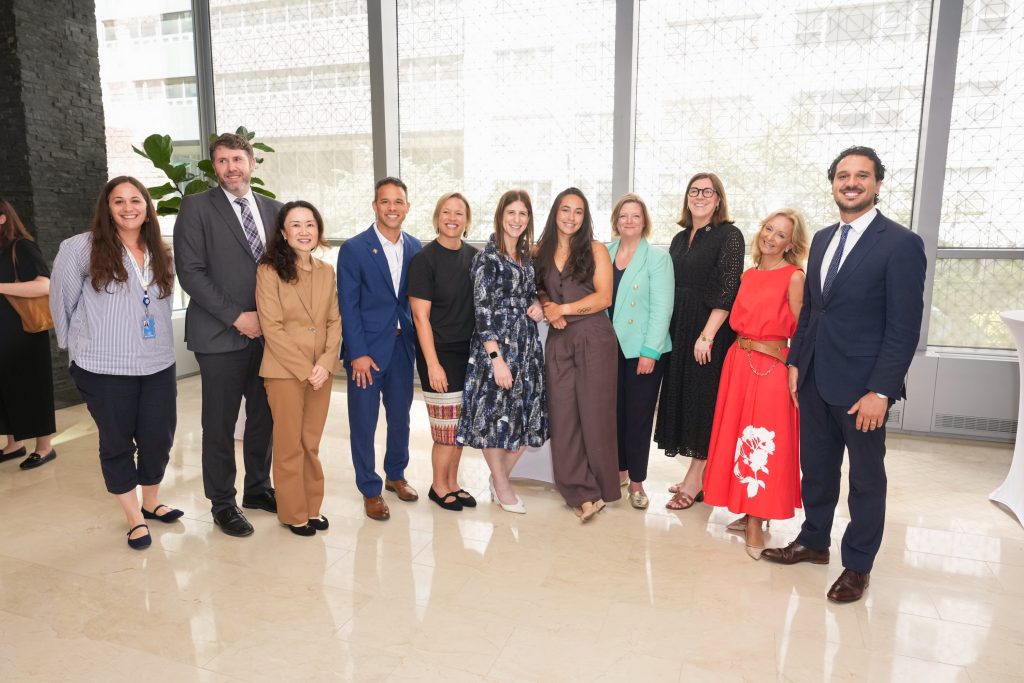
The HLPF event showcased the transformative potential of sport to drive social impact over the next five years and beyond. Critical in realising that potential will be commitments by governments and stakeholders to:
- Recognise sport as a catalytic policy tool to advance gender equality (SDG 5) and leverage partnerships for development (SDG 17)
- Enable scalable, values-based partnership models between the sport and development sectors that deliver on SDGs
- Mobilise political and financial support for sport for development strategies
- Embed inclusive, safe sport in national development agendas
“The event showed increased political will and appetite from decision-makers to embed inclusive sport within national development agendas, building on what this partnership with World Rugby has achieved globally,” added Meg Knight, a Co-Director at ChildFund Rugby.
“2030 is rapidly approaching, and by harnessing the reach of sport in communities, partnerships can contribute meaningful to key SDGs and empower young people in vulnerable situations to play their full role in national development.”
Media contact: Dominic Rumbles Dominic.Rumbles@worldrugby.org
Images and video available on request.
Event Details
Title: Sport as a Catalyst: Advancing Gender Equality and Social Impact through Strategic Partnerships
When: 22 July 2025, 1.15-2.45pm ET
Where: Permanent Mission of the Republic of Singapore to the United Nations, 318 East 48th Street New York, NY10017
About ChildFund Rugby:
ChildFund Rugby, World Rugby’s global Social Impact Partner, is a dedicated Sport for Development team, committed to harnessing the power of rugby to drive positive social impact.
ChildFund Rugby collaborates with rugby partners globally to provide children and young people with opportunities to play, learn and lead. Through integrated rugby and life skills learning, young people in vulnerable situations develop critical social and emotional skills, which help them achieve personal goals, build empathy, manage emotions, develop positive relationships, and make responsible decisions.
ChildFund Rugby is led by the ChildFund Alliance – a global network of 11 organisations working with partners in more than 70 countries, impacting nearly 30 million children in vulnerable situations.
Beijing+30
Beijing+30 marks 30 years since the adoption of the Beijing Declaration and Platform for Action — the world’s most ambitious global blueprint for achieving gender equality.
About UN Women
UN Women exists to advance women’s rights, gender equality and the empowerment of all women and girls. As the lead UN entity on gender equality, we shift laws, institutions, social behaviours and services to close the gender gap and build an equal world for all women and girls. We keep the rights of women and girls at the centre of global progress – always, everywhere. Because gender equality is not just what we do. It is who we are.
About World Rugby
World Rugby is an international federation and a global movement comprising more than 500 million fans and eight million players within 132 national member federations affiliated through six regional associations.
